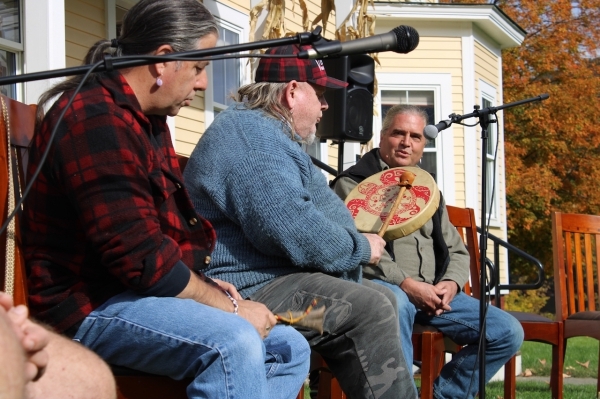BRATTLEBORO — In May 2019, Vermont Gov. Phil Scott signed into law a bill officially recognizing the second Monday in October as Indigenous Peoples' Day, in place of Columbus Day.
At this year's celebration in Brattleboro, members of the Elnu Abenaki community announced the launch of the Atowi Project, a long-term collaboration with Retreat Farm, which hosted the gathering.
Centered upon the West River's “Meadows” - known traditionally to the Abenaki as Wantastegok - the project will “enable a place-based opportunity for Native voices to engage with the broader community, while enhancing capacity and creating awareness for the future,” according to a news release.
The farm says it recognizes that the landscape holds and is shaped “by a multitude of stories, although many of these narratives have been ignored, or suppressed, with a resultant loss of diversity, vitality, justice, and equity.
“Affirming the Abenaki experience through its cultural values will aid in addressing this lack of inclusion, in all of its complexity, and bring benefit both to the Indigenous and broader communities.”
Rich Holschuh, who will help guide the undertaking, said that “Atowi is a Western Abenaki word meaning 'together, in space and time.' Through diverse programming, the Atowi Project will affirm Native relationships to the land and its inhabitants, restoring these vital perspectives to the conversations now underway.”
Retreat Farm Executive Director Buzz Schmidt said these initiatives “align well with the Farm's commitment to foster the reconnection of people with the land that sustains us, while supporting the communities that have been excluded from those benefits.”
Members of the Abenaki community will implement and lead multiple opportunities for engagement.
Examples of planned programming include an Abenaki-lensed interpretive trail, a series of workshops to broaden understanding and awareness, classes and presentations for traditional skills, celebrations and social gatherings, a demonstration garden in support of Indigenous food sovereignty, Abenaki language lessons, living history demonstrations, and cultural enrichment opportunities with speakers, films, and exhibits.
For information and resources, visit atowi.org. The website is under development and updated regularly.
